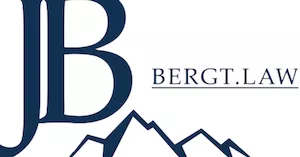- within Corporate/Commercial Law topic(s)
- with readers working within the Banking & Credit industries
When observers of continental private-wealth structures spoke, until recently, of the alpine principality as an unassailable redoubt of legal certainty, they rarely anticipated a scenario in which hundreds of trusts and foundations—still duly registered, still holding vessels, aircraft, blue-chip share portfolios and trophy properties—would become simultaneously leaderless as well as commercially inert; yet, in the wake of the United States' secondary-sanctions packages targeting Russian interests, precisely such a legal vacuum has materialised, leaving up to 800 entities "alive" in law but paralysed in fact in Liechtenstein.
This development, can be traced to an apparently technical but ultimately existential policy move: in September 2024 the Financial Market Authority (FMA) issued guidance that treated select US measures as de-facto binding for Liechtenstein fiduciaries, thereby compelling directors to resign en masse rather than risk the reputational and personal consequences of inadvertent sanctions breaches; the guidance was couched in the vocabulary of prudence, yet its practical effect was to invert the risk calculus for professional service providers, transforming "relationship continuity" from a hallmark of stewardship into a potential liability.
What has emerged is an ecosystem of "orphaned" vehicles: the legal shell endures, contractual obligations persist, but authorised signatories are absent, banks block outgoing payments, and auditors cannot close the books, making them effectively stranded or derelicted. The attendant value-at-risk is staggering—not only liquid balances and listed securities but also illiquid, complex assets such as minority stakes in joint-stock companies, intellectual-property holding platforms and securitised receivables—each one subject to time-sensitive management directives that are now impossible to execute.
Beyond the Ultimate Beneficial Owner: When the Asset Itself Carries the Prohibition
While media coverage has focused on the nationality or domiciliary status of ultimate beneficial owners (UBOs), practitioners must also internalise a far subtler danger: even an otherwise untainted foundation or trust can be rendered sanction-exposed if a single asset—say, a block of shares in a sanctioned issuer—falls within the prohibition's ambit, thereby contaminating the vehicle#. The same mechanism can propagate upstream as well as downstream.
Tactical Pathways: From FIU Filings to OFAC Advisory Opinions
While a lasting solution can ultimately only be reached (geo-)politically we assist our clients in a strategic, forward-leaning model that integrates (i) compliance reviews, (ii) applications to the national Financial Intelligence Unit (FIU) for safe-harbour confirmations or suspicious-activity report clarifications, and most importantly (iii) direct engagement with the U.S. Office of Foreign Assets Control (OFAC) for specific-license requests or advisory-opinion guidance in circumstances where liquidation, dividend extraction or restructuring would otherwise violate the relevant Executive Order.
Conclusion
Liechtenstein's allure as a structurally sophisticated yet politically neutral trust and foundation jurisdiction has not vanished; rather, it has transitioned into a regulatory environment where governance agility, sanctions literacy and cross-border advisory capacity constitute the decisive competitive advantages. Bergt Law, drawing on a hybrid skillset that merges academic-level legal analysis with entrepreneurial execution, stands ready to legally support trustees, family offices and institutional investors through the present turbulence, converting latent paralysis into actionable strategy.
Sources: Ruehl, M. (2025, July 7). Liechtenstein hit by Russia-linked 'zombie trust' crisis. Financial Times.
Key Findings & Core Statements
- Secondary sanctions have created up to 800 "zombie" trusts and foundations in Liechtenstein, immobilising assets worth billions.
- The FMA's September 2024 zero-tolerance guidance triggered mass resignations by fiduciaries, leaving many vehicles without authorised management.
- Sanctions exposure is not solely owner-centric but may also be asset-centric: holdings such as shares in listed Russian issuers can contaminate an otherwise legitimate structure and render it factually stranded just the same.
- Proactive interfaces with the FIU and OFAC can unlock specific licences or clarifications and guidancces, enabling lawful liquidation, dividend remittance or restructuring.
The content of this article is intended to provide a general guide to the subject matter. Specialist advice should be sought about your specific circumstances.


